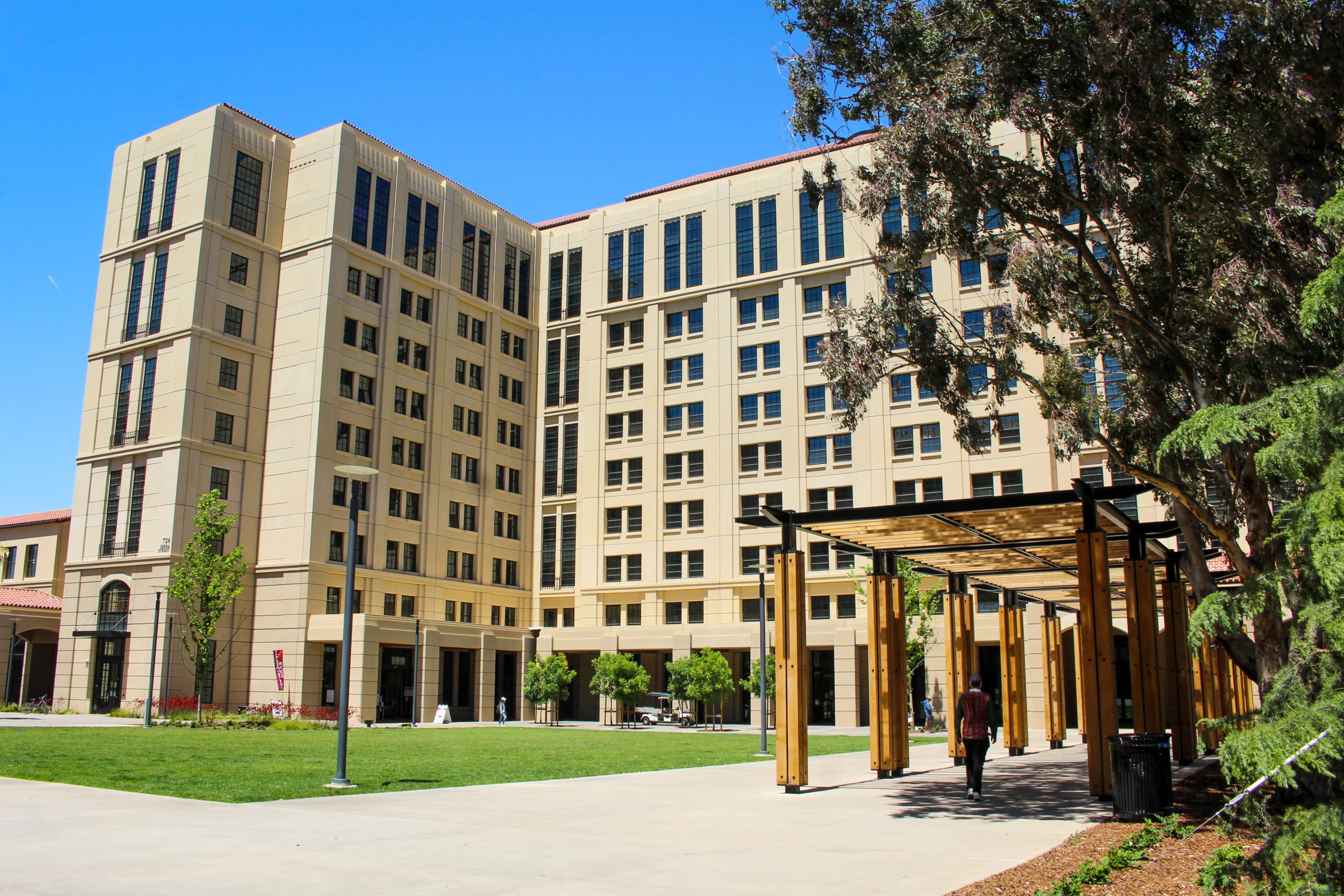The Graduate Student Council (GSC) explored possible solutions to concerns among graduate students about the impacts of the University’s alcohol and gathering policies on social life during its Tuesday meeting.
GSC co-chair Jason Anderson, a third-year Ph.D. student in aeronautics and astronautics, read a related statement from Escondido Village Graduate Residences Building D (EVGR-D) Head Community Associate (HCA) Delaney Miller M.S. ’20, who is a fifth-year Ph.D. student in mechanical engineering. Miller expressed confusion about why graduate students have the same sober monitoring rules as undergraduates, referring to the expected ratio of one sober monitor per 25 expected guests at parties.
The statement argued that graduate students are at a different stage of life than undergraduates and that these policies limit their ability to host larger events. “Stanford graduate students face a crisis of isolation, not intoxication,” Miller wrote.
Rains HCA Matthew Hunter M.S. ’20, a fourth-year Ph.D. student in aeronautics and astronautics, agreed with Miller. Hunter said that the policies have made it more difficult to bring back pre-pandemic social culture.
Joe Kaczorowski, the assistant director of Substance User Programs, Education & Resources (SUPER), said that the party planning guidelines are not “hard-and-fast” rules, aside from the ones that are “directly informed by the alcohol policy,” such as the prohibition on serving alcohol to minors.
Kaczorowski said that achieving the 25-to-one ratio may be difficult for large events, but that SUPER is willing to try to find ways to “supplement that” — for example, by hiring bartenders or security.
However, Rains HCA Alessandra Napoli, a third-year Ph.D. student in mechanical engineering, said that it was unclear that the party planning guidelines were not strict requirements.
GSC co-chair Emily Schell M.A. ’18, a fifth-year Ph.D. student in developmental and psychological sciences, said that she hopes they can find a middle ground. “We all have a common goal of bringing back social life and doing so safely,” Schell said.
The GSC also discussed academic calendar modifications for religious holidays.
The first day of this academic year coincided with Rosh Hashanah. Co-social chair and member of the Committee on Graduate Studies (C-GS) Kavya Sreedhar, a fourth-year Ph.D. student in electrical engineering, said that the C-GS voted to start autumn quarter one day later next year in order to avoid another religious holiday conflict.
According to Sreedhar, there is a proposal for C-GS and the Committee on Undergraduate Standards and Policy (C-USP) to have a joint subcommittee that will determine how to address future conflicts. Given the ongoing nature of the issue, Sreedhar also solicited input from meeting attendees.
Benefits and affordability chair Guillem Megías Homar M.S. ’22, a first-year Ph.D. student in aeronautics and astronautics, provided an update on international student advocacy. Homar is working on a resolution to reimburse visa and SEVIS fees for international students, which Homar said can reach around $600 or $800 total depending on the country a student is from.
Schell said many of the graduate academic workers at Stanford are international students. “Reducing barriers to international student access is really critical to the functioning of this university,” she said.
Anderson shared the plans for a party, which took place today and provided students with a dedicated space to eat and fill out the Student Expenses Survey. The survey, launched last week by Stanford Institutional Research & Decision Support (IR&DS), will close on Nov. 28, and its results will be used to help inform student financial aid.
Co-social chair Leslie Luqueño M.A. ’22, a third-year Ph.D. student in education, said that the GSC’s Black Panther: Wakanda Forever social event received positive feedback from students. Sreedhar also shared that they are working with the Disability Community Space (DisCo) to organize an event around finals week, where warm drinks and pastries will be served.
The GSC voted in a new councilor: Pranav Jain M.S. ’24 MBA ’24, a computer science masters student and MBA student, who will serve as a representative for the Graduate School of Business (GSB). Jain will replace Harshit Kohli MBA ’23, who stepped down due to scheduling conflicts.
